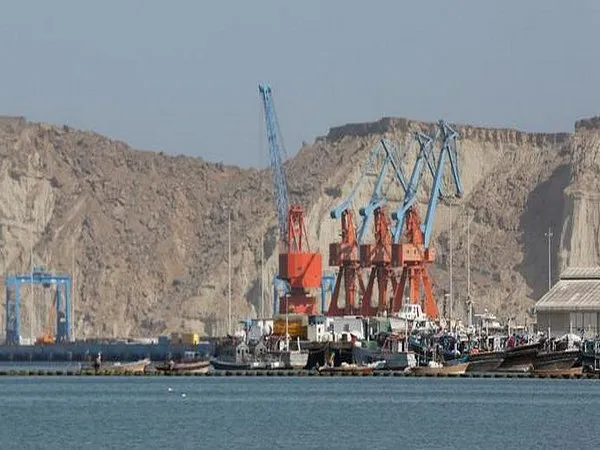Ever since Beijing launched the China-Pakistan Economic Corridor (CPEC), the repeated attacks on Chinese nationals in Pakistan’s Sindh, Balochistan, Khyber Pakhtunkhwa provinces and the Pakistan-occupied Kashmir region reveal the strong dissent of Pakistani nationals against Chinese interests.
Records suggest that in the last six years, especially after Chinese landed in hordes in Pakistan in connection with CPEC projects, different extremist groups have made Chinese interests targets of their attacks inside the country.
Recently, a Chinese national was killed on Wednesday and two others were injured when an unidentified man opened fire inside a dental clinic in Karachi’s Saddar area.
According to the Asian Lite publication, since 2016, when Beijing launched the China-Pakistan Economic Corridor (CPEC), this was the 10th attack on Chinese nationals and interests in Pakistan. In Karachi, this was the second attack on Chinese nationals since the Shehbaz Sharif government came into power.
In line with these attacks, on January 17, political activists and Pakistani nationals in Sindh province organised a massive rally and raise pro-freedom slogans while condemning China for exploiting their resources.
Last year in August, people burned tires, chanted slogans, and shut down Pakistan’s port city of Gwadar, protesting against China’s illegal fishing in nearby waters and the CPEC project which is a part of President Xi Jinping’s Belt and Road Initiative, stretching across 70 countries in the world, Asian Lite reported.
In July, nine Chinese workers were killed when a vehicle laden with explosives and driven by a suicide attacker rammed the bus in which they were travelling towards the Dasu Hydropower project in the Upper Kohistan area of Pakistan’s Khyber Pakhtunkhwa province.
China’s ambassador to Pakistan, Nong Rong escaped unhurt, yet five people were killed and 12 others injured when a suicide bomb attack was carried out at a luxury hotel in Pakistan’s Quetta in April 2021.
In July 2020, a huge protest erupted in Muzaffarabad of Pakistan-occupied Kashmir against China, condemning it for the illegal construction of Neelum Jhelum and Kohala Hydropower stations. The protestors highlighted the environmental impacts of dams constructed by China under the CPEC initiative, Asian Lite reported.
Earlier, on November 18, 2020, thousands of Pakistani labourers staged a protest against China in Karachi, complaining about unequal wages received by them as compared to Chinese workers involved in CPEC projects.
Earlier, the Chinese Consulate in Karachi was attacked by the Baloch Liberation Army in November 2018. It was the second attack on Chinese interests in that year after a bus carrying Chinese engineers was targeted by suicide bombers in Baluchistan’s Dalbandin city in August 2018. Three Chinese nationals were injured in that suicide bomb attack.
In 2017, an outfit called ‘Majeed Brigade’ attacked a five-star hotel in Gwadar when the Chinese delegation was busy planning for a port project. Eight people were killed in that attack, Asian Lite reported.
In the same year, a video on Twitter and other social media surfaced in which a purported member of the ‘Majeed Brigade’ is heard warning Chinese President Xi Jinping to “get out of Balochistan.”
Earlier in May 2017, the couple Li Zang Hing and Ming Leassi Ha were kidnapped from Quetta and were later killed. The Islamic State had claimed responsibility for killing the Chinese couple who were said to be teachers at a language centre in Quetta, Asian Lite reported.
According to the International Forum for Right and Security (IFFRAS), CPEC was sold to the people of GB as a landmark project to uplift their lives and infrastructure, but it has in fact deepened their colonial subjugation.
More importantly, the implementation of the project constitutes an illegal encroachment on territory that is legally a part of the Indian Union Territory of Jammu and Kashmir.
Currently, one consequence of the imperialist conquest of GB by China has been natural resource exploitation and infrastructural development by Chinese companies in GB, whose primary beneficiary has been the Pakistani military, reported IFFRAS.
This has come at a cost to local livelihood and environmental sustainability.
China’s economic expansionists programme aimed at conquering a key geographical location lying at the heart of Central Asia, India and China, i.e., Gilgit Baltistan (GB) in Pakistan-occupied Kashmir (PoK) has led to several attacks on Chinese nationals.
Indications are clear that Pakistan has become a killing field for Chinese nationals and no amount of their security is foolproof as Beijing wants it to be.
However, China has never criticised the Pakistani government or its law enforcement agencies for their failure to stop the attacks on Chinese nationals. This is surprising for foreign watchers across the world, Asian Lite reported.

